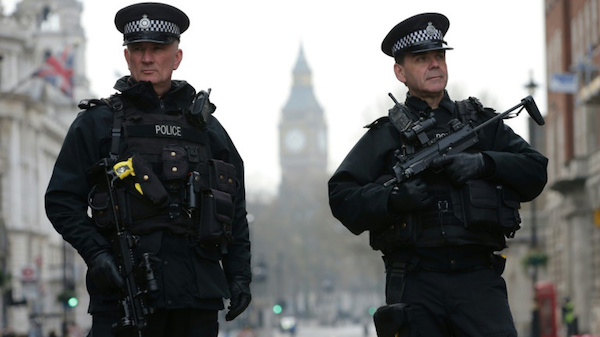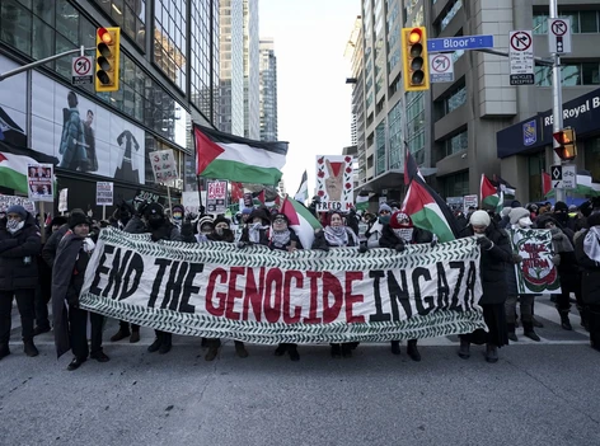
British police have tightened security near the Houses of Parliament after a terror attack in Westminster on March 22. (AFP photo)
Extremists are "operating with impunity" through exploiting gaps in British laws, according to former head of UK counterterror policing.
Sir Mark Rowley, who plans to assess the efficacy of current legislation pertaining to counterterrorism, said these gaps are being exploited by terrorists daily.
Retired from the Metropolitan Police in 2018, Rowley said he planned to "identify the gaps that exist at the boundaries of current laws, such as hate crime and terrorism, which are being exploited daily by extremists".
"I knew that we had strong counterterrorism systems, resources and laws in place," he said, The Independent reported.
"However, I increasingly realized that nationally we are less experienced and ready to address the growing threats from hateful extremists who encourage community tensions, the rise in hate crime and some [people] to even become terrorists."
According to a previous report by The Independent, UK counterterror police had "no plan" to deal with the Generation Identity group whose "great replacement" ideology inspired the Christchurch mass shooting in New Zealand.
And no one has been prosecuted for being a member of Anjem Choudaryís al-Muhajiroun terror network after it was banned 14 years ago.
In 2019, the head of British counterterror police Neil Basu warned that even terror groups who did not openly call for extremism and violence were capable of inspiring terrorist attacks.
Elaborating on a spectrum of far-right ideology from "cultural nationalism" to white supremacy, Basu said, "Anywhere along this spectrum, people who are vulnerable to it can adopt part of that ideology to move into a terrorist act."
Among the plots inspired by extremist material which fell short of terror laws is the 2017 Finsbury Park attack for which a legal review has been launched by the Commission for Countering Extremism.
The commission has already demanded an overhaul of the governmentís strategy, proposing a new definition of "hateful extremism", which can "make the moral case for violence" even if it is not directly called for in a way that is a violation of terror laws.
Sara Khan, the lead commissioner, said efforts to tackle persistent offenders had been "inconsistent and often ineffective".
"When extremists engage in terrorist activity, they are often caught by robust counterterrorism legislation. But when they incite hatred, engage in persistent hatred or justify violence against others, extremists know they will not cross over into the threshold of terrorism.
"As a result, many extremist actors and organizations, whether far-right, Islamist or other continue to operate with impunity in our country both online and offline."
SOURCE: PRESS TV
LINK: https://www.ansarpress.com/english/18471
TAGS:






























 Farkhunda Buried, Ghani Appoints Fact-Finding Team
Farkhunda Buried, Ghani Appoints Fact-Finding Team




